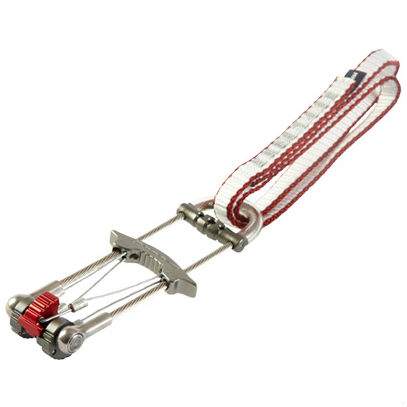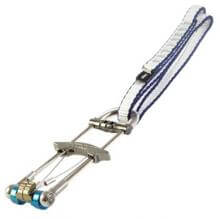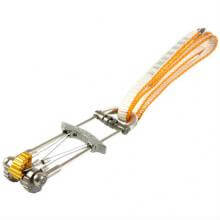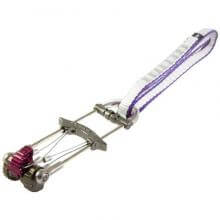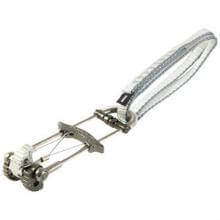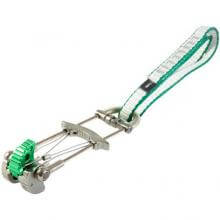3CU 0.5
Description
Conventional cams work well in cracks and open breaks, but pockets and constricted placements can cause problems. So what can you do if the cam is too wide to fit? The answer is obvious really: reduce the number of cam lobes.
3CUs have three cam lobes instead of four. This means the head of the cam is significantly narrower and will fit in much tighter placements.
We’ve built these neat little units to exactly the same specification as the 4CUs but limited the size range to six options running from 0 up to 1.75.
Retail price
This Product is Hard to Find.
We don’t know where you can buy this item online in the US. We’ll continue to check all the major retailers and will update this page as soon as we find one.
If you know where to find this online in the US, let us know, and we’ll add the link.
Weight (g / oz)  Weight (g / oz)In grams and ounces, the weight, as stated by the manufacturer/brand. | 80.0 g / 2.82 oz |
| Cam Head | 3 lobes, single axle |
| Offset | No offset |
| Stem | Flexible double stem |
| Sling | Dyneema (double sling loop) |
| Camming Angle | 13.75° |
| Active Strength | 12 kN Single loop strength rating is 12 kN and double loop strength rating is 14kN. |
Cam Range (mm / in)  Cam Range (mm / in)In millimeters and inches, the maximum dimensions of the cam lobes when shut tight and fully extended. Since the "usable" range is so debatable, all manufacturers now list the full dimensions to avoid selling themselves short. For offset cams, we'll list the max dimensions possible and then afterwards list each of lobe dimensions. | 17.0 - 24.0 mm (0.67 - 0.94 in) |
| Materials | |
| Certification | CE |
No reviews yet.
Summary: The most noticeable thing about the DMM 3CUs and 4CUs are their bright colors, which makes picking the correct size from a crowded rack a breeze. Each unit's cam lobes, trigger bar, and thumb bar are anodized to match, and, yes, the doubled sling blends right in too. The trigger bar allows for a bit of independent cam manipulation -- rare on a U-stem unit. Another unique feature are the cam lobes (with integrated cam stops), which are wide when fully retracted and taper to a more standard width near the end of their range. When the cam is placed tightly, there is more cam surface against the rock for greater grip -- great for parallel cracks, but if the crack is flared or irregular the cams will sit awkwardly. Another drawback is the trigger bar's tendency to slide up the trigger wires toward the head. The extra step of pulling the trigger back into position is easy, but a burden on pumpy routes.
Pros: Extendable sling; trigger bar allows for some independent cam action; great color coding; cam stops; light.
Cons: Poor performance in flared or awkward placements; trigger bar slides down.
If you know of a good product video that should be here, let us know, and we'll put it up.
If you're looking for gear videos in general, check out our Vimeo and YouTube channels to see the newest gear.

